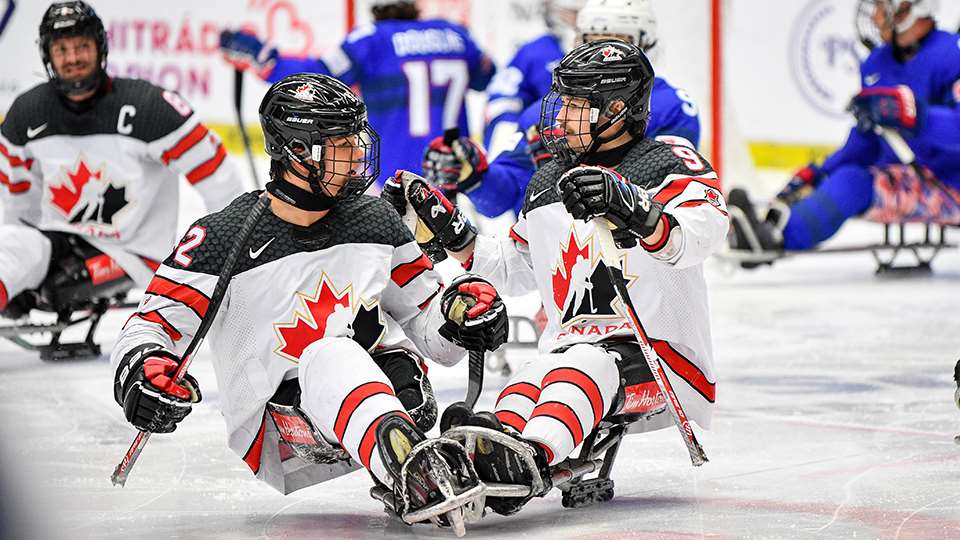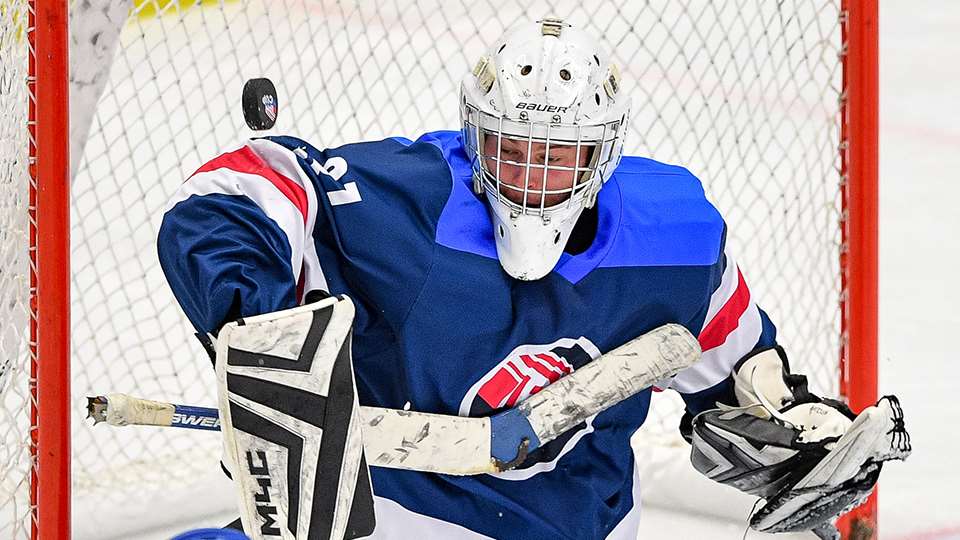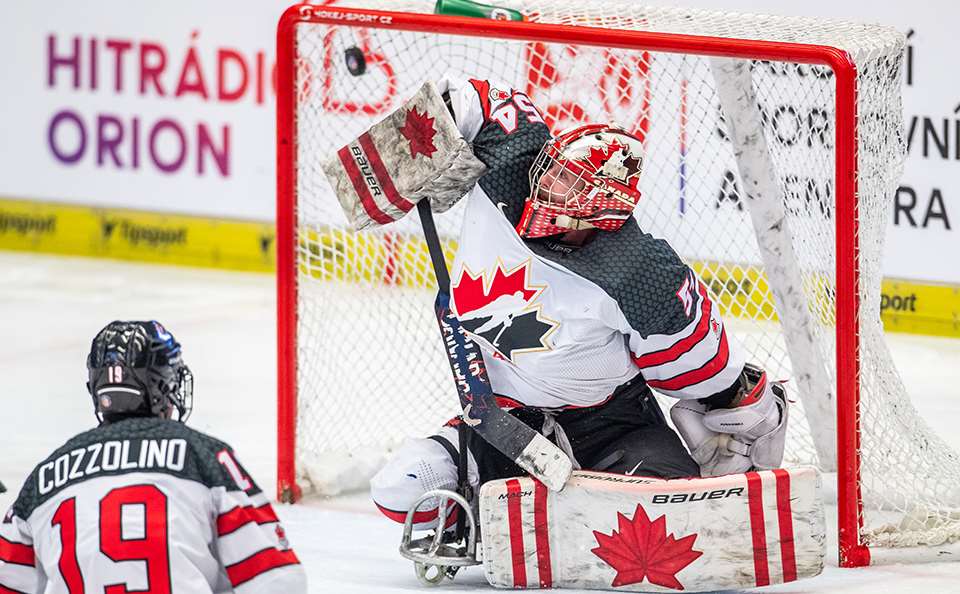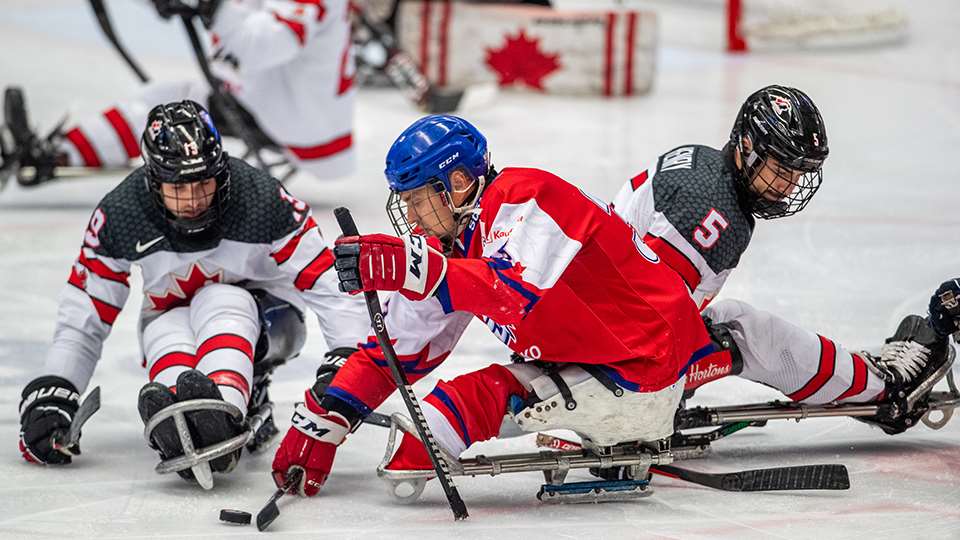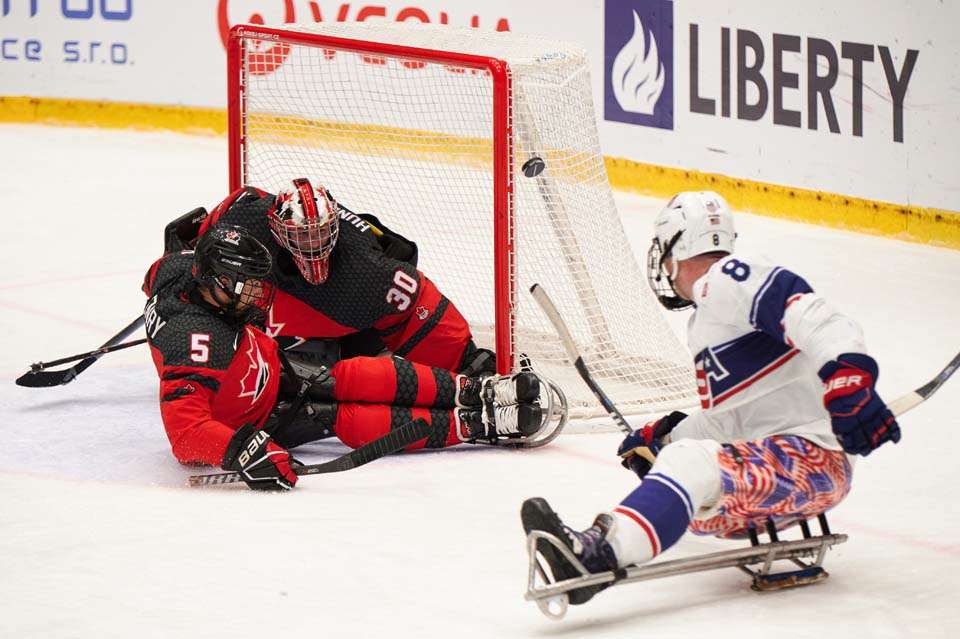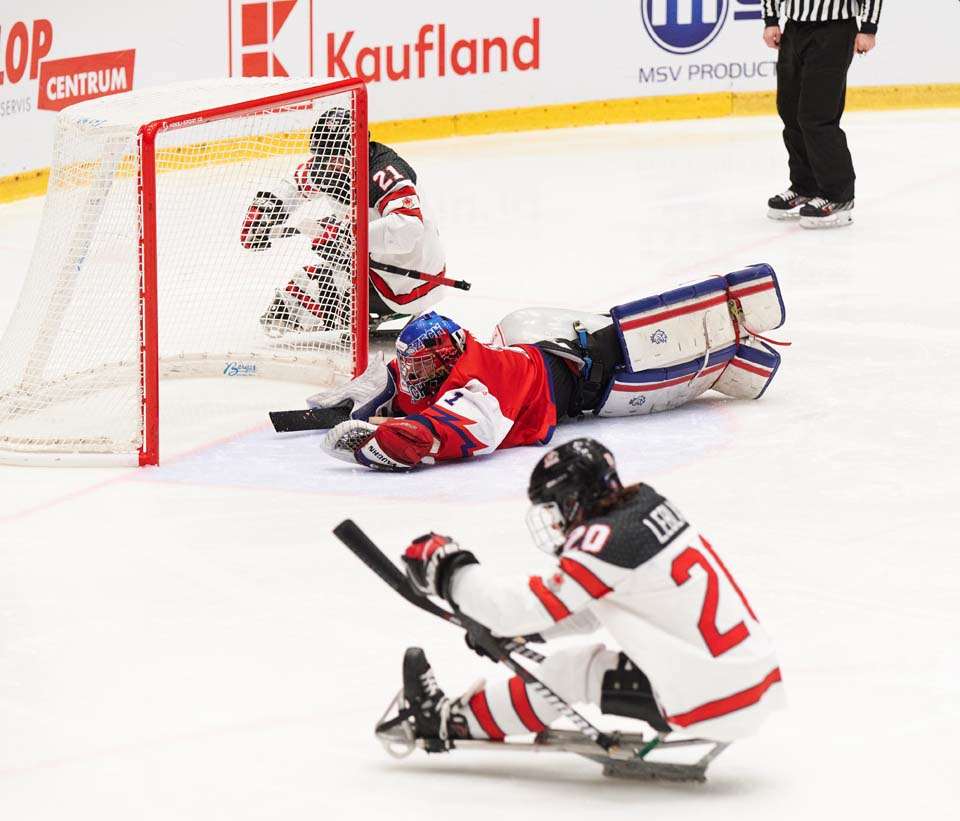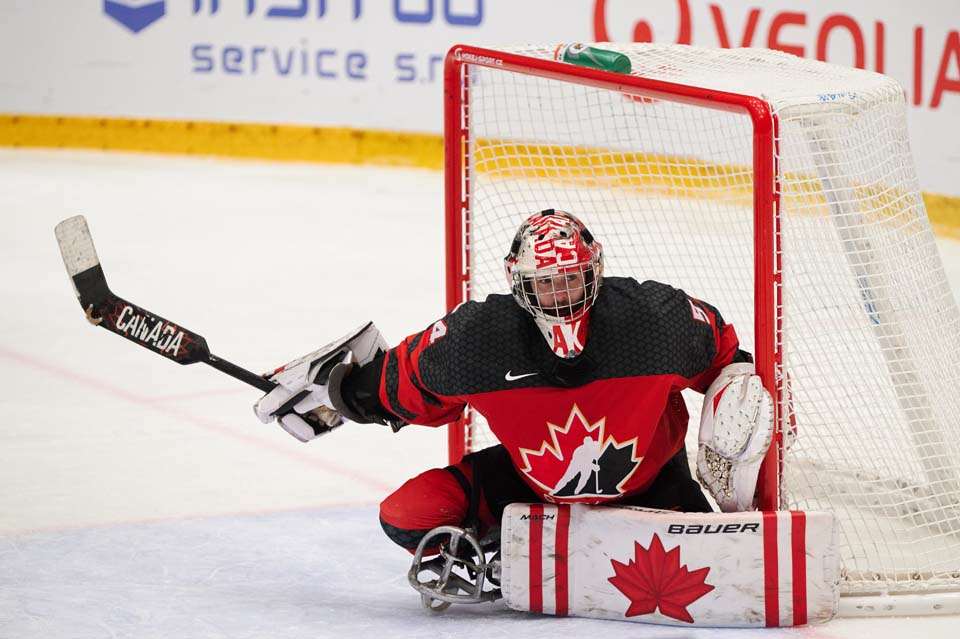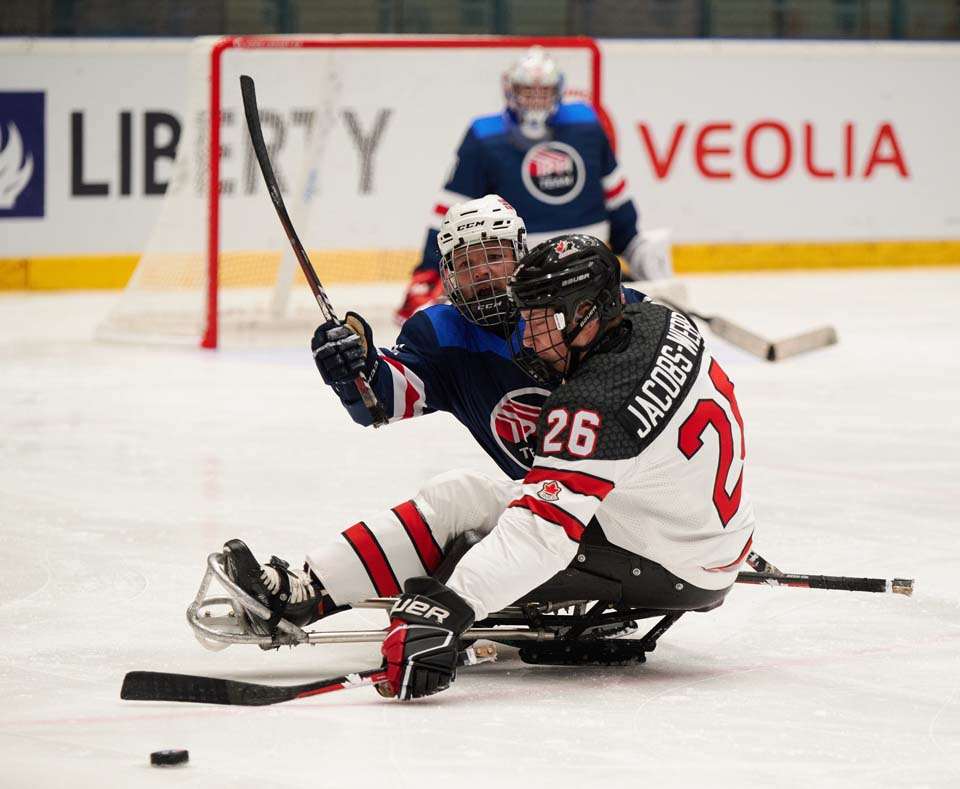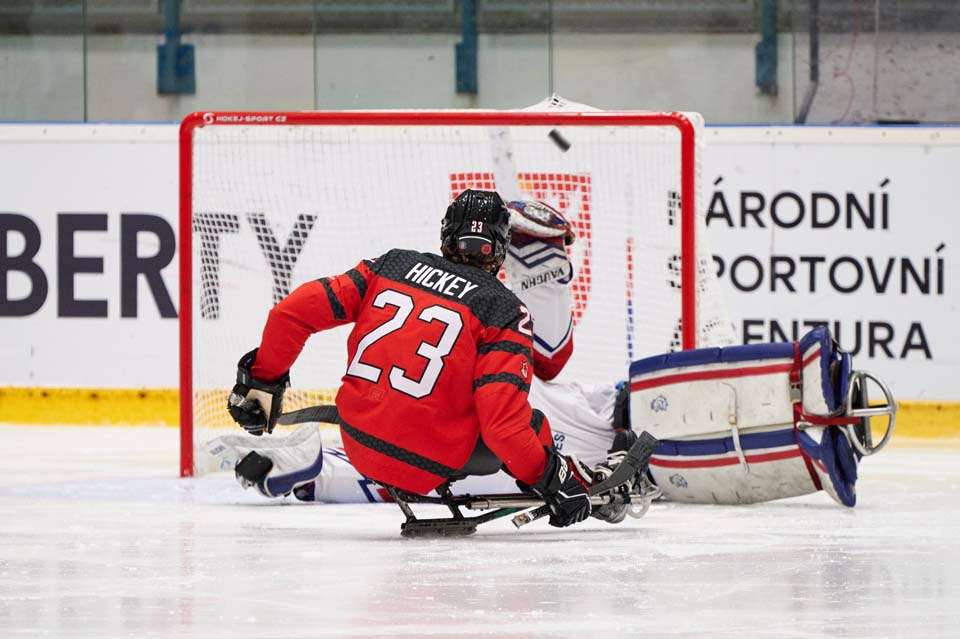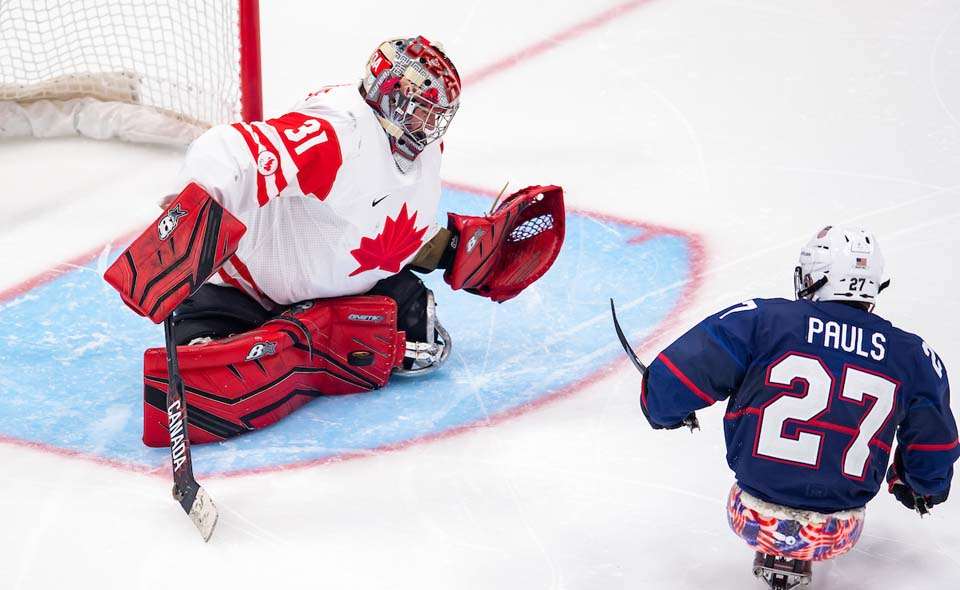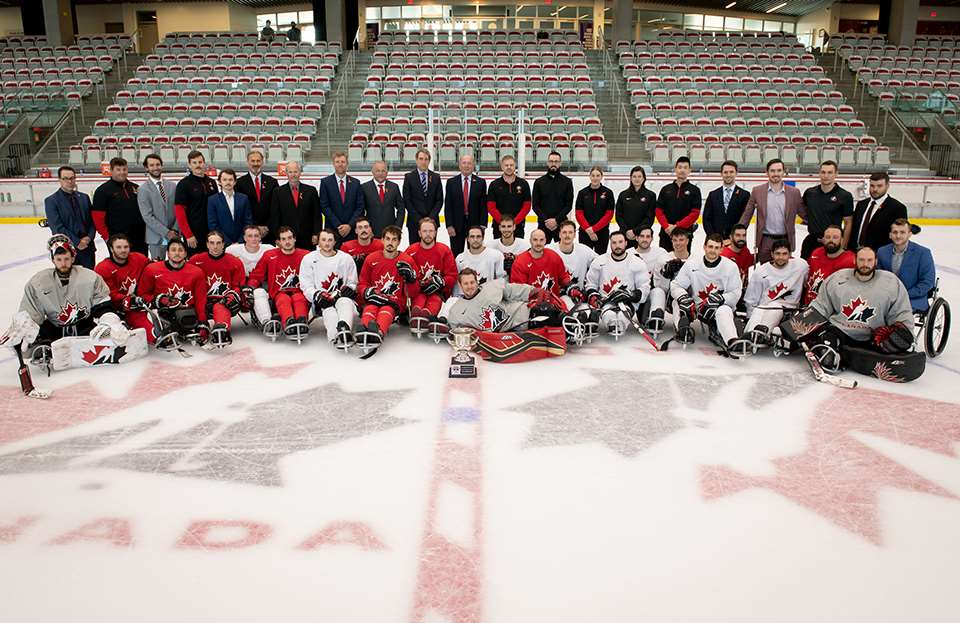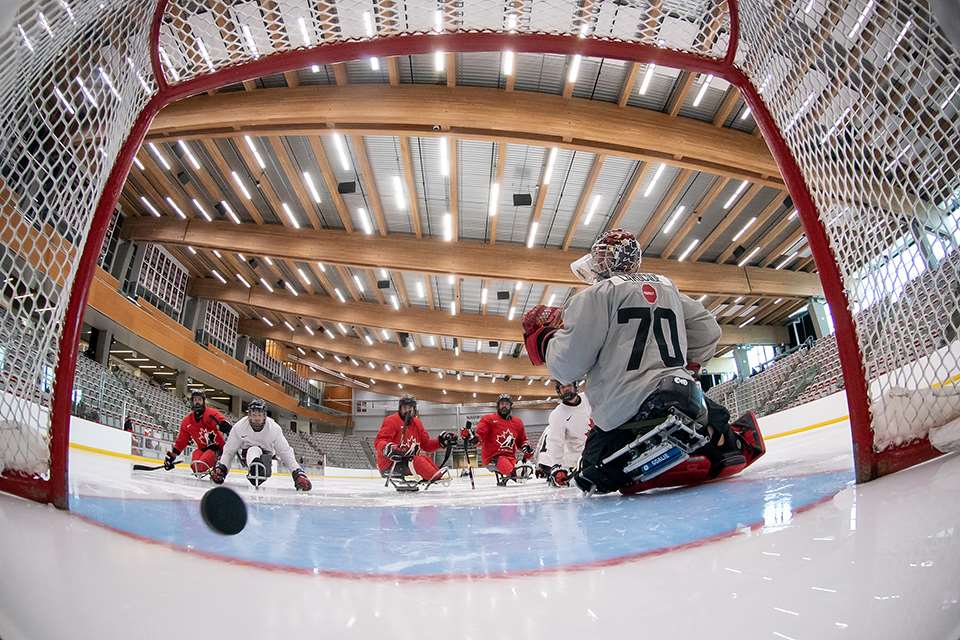Para Hockey Development
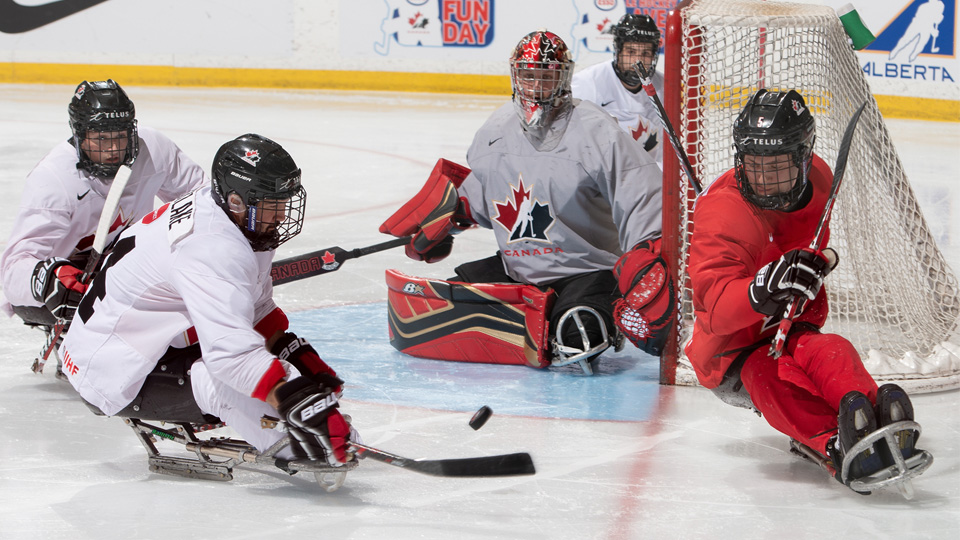
Overview
Para hockey is the Paralympic version of ice hockey and, since its debut on the Paralympic program in 1994, it has become one of the biggest attractions for spectators at the Paralympic Winter Games. It is fast-paced, highly physical and played by athletes with a physical disability in the lower part of the body.
Rules
Para hockey is governed by the IPC (International Paralympic Committee). It follows the rules of the International Ice Hockey Federation (IIHF) with a few modifications.
Athletes sit strapped into a metal frame that rests on two regular-sized skate blades. The sled is raised high enough to allow the puck to pass underneath. Athletes use two 75-cm-long hockey sticks, with picks on one end and blades on the other. The pick is used to propel the sled across the ice, and the curved blade is used to handle the puck.
The goaltender may have an additional pick at the base end of his stick, and may use an additional stick with a blade or a trapper glove with teeth.
Just as in stand-up hockey, teams play with five skaters and a goaltender per side. Periods in para hockey are 15 minutes in length.
Classification & Eligibility
To participate in IPC competitions and sanctioned events (i.e. Paralympic Winter Games), athletes must have an impairment of permanent nature in the lower part of the body of such a degree that it is obvious and easily recognizable and makes ordinary skating – and consequently playing stand-up hockey – impossible.
Examples include amputation (leg, foot), paresis (loss of 10 muscle points in both legs), joint immobility, cerebral palsy and leg shortening of at least seven centimetres.
Canada’s National Para Hockey Team
Canada’s first national team was born in 1993 with the creation of Sledge Hockey of Canada (SHOC), which represented Canada on the international stage for 11 years. When para hockey joined Hockey Canada as a full member in 2004, the national team was launched into its most successful period, beginning with a first Paraympic gold medal in 2006.
Since 2004, Canada has cemented its place as a para hockey power, winning gold at the Paralympics (2006), IPC World Para Hockey Championship (2008, 2013, 2017) and Canadian Tire Para Hockey Cup/World Sledge Hockey Challenge (2007, 2008, April 2011, November 2011, 2013).
The program has also produced ambassadors not only for the game, but for Canada.
Follow the history of Canada’s National Para Hockey Team
Provincial Programs
B.C. Hockey
Hockey Alberta
Hockey Saskatchewan
Ontario Sledge Hockey Association
Hockey Quebec
Hockey New Brunswick
Hockey Nova Scotia
Hockey P.E.I.

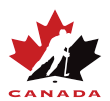
 HOCKEY CANADA
HOCKEY CANADA

